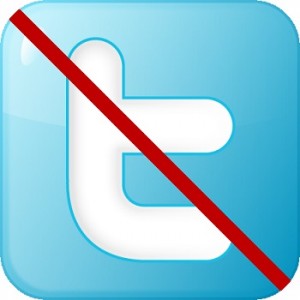The popular online social networking service is no longer developing its Glass app.
Last week, 9to5Google reported that Twitter has stopped the development of its Google Glass application and the app has disappeared from the Glass market, which means new users or users who never installed the app on their wearable device when it was available, will not have this option now and those who previously had the app but removed it will not be able to reinstall it.
The app from Twitter is also gone from MyGlass.
The app, which first became available to the Glass market back in May of last year, is also absent from Google Glass’s management and app center, MyGlass. While it used to carry a message that stated if a user has Glass and wanted to use Twitter, they simply needed to turn on Twitter by heading to google.com/myglass, this message is now gone and once the app is deleted by a user, it cannot be reinstalled.
 A Reddit user known as pete716, who was among the first to have received early access to the device, posted about the sudden removal of the app and said that “According to Glass support Twitter is no longer developing their Glass app. This was one of my favorite and most used apps on Glass. If you remove Twitter from your Glass it disappears from Glassware and there is no option to reinstall it.”
A Reddit user known as pete716, who was among the first to have received early access to the device, posted about the sudden removal of the app and said that “According to Glass support Twitter is no longer developing their Glass app. This was one of my favorite and most used apps on Glass. If you remove Twitter from your Glass it disappears from Glassware and there is no option to reinstall it.”
Google Glass users may need to wait for a third-party app developer to fill the void.
It is not clear why Twitter dropped its support for its Glass app, especially since it seemed well liked by users and the two products are well suited to one another. However, what this means is that users of the wearable won’t be able to enjoy the tweeting experience until a third-party app developer comes along and provides a solution.
One Redditor commented that the withdrawn support from Twitter is “bad news” because of what has been implied, which is that big names like Twitter appear to be losing interest in Google Glass even before the device has hit the market for consumers. Whether or not major players are losing interest in the smart glasses has yet to be seen, but this sudden move by the popular social network has certainly raised some eyebrows.
According to a recent ABI Research study, these applications are ready to be transformed for the better.
The results of a new study by ABI Research have been released and have shown that as new powerful players such as Samsung, Google, and Apple make their way into the mhealth space, the apps in this category are getting ready to undergo a considerable transformation.
Over the last two years, the movement in these health and fitness based apps has held limited continuity.
A study that spanned two years showed that mhealth apps on the iOS and Android platforms have seen quite a low level of continuity in terms of popularity. As a whole, the popularity of applications is split between the range of the functionality and of the vendors. As this specific market begins to mature, however, it is increasingly believed that there will be a transformation of the apps that make it up.
Mhealth apps will become more important to the sharing of health care data and will link to many types of service.
 The ABI Research study showed that it will be more commonplace for mobile health apps to be used by patients to share health data with doctors. Moreover, it will be used by way of a range of different connected platforms and devices, for that matter. Platforms will include those such as Google Fit, the HealthKit from Apple, and Epic MyChart, among others.
The ABI Research study showed that it will be more commonplace for mobile health apps to be used by patients to share health data with doctors. Moreover, it will be used by way of a range of different connected platforms and devices, for that matter. Platforms will include those such as Google Fit, the HealthKit from Apple, and Epic MyChart, among others.
According to the ABI Research Principal Analyst, Jonathan Collins, “In both categories there has been a good deal of variation between the most popular apps—from quarter-to-quarter and between iOS and Android.” At the same time, Collins explained, there remains a widespread consensus when it comes to the types of mobile apps that are the most popular and that continue to build the drive toward data integration that is collected by way of wearable technology devices. This creates an overall environment in which there are many different players.
At the moment, mhealth apps are headed in a direction toward tracking activity and assisting an individual in meeting his or her general health needs. That said, within the medical category, itself, there is a growing interest in those that will provide medical service connections as well as information.
 A Reddit user known as pete716, who was among the first to have received early access to the device, posted about the sudden removal of the app and said that “According to Glass support Twitter is no longer developing their Glass app. This was one of my favorite and most used apps on Glass. If you remove Twitter from your Glass it disappears from Glassware and there is no option to reinstall it.”
A Reddit user known as pete716, who was among the first to have received early access to the device, posted about the sudden removal of the app and said that “According to Glass support Twitter is no longer developing their Glass app. This was one of my favorite and most used apps on Glass. If you remove Twitter from your Glass it disappears from Glassware and there is no option to reinstall it.”
 The ABI Research study showed that it will be more commonplace for
The ABI Research study showed that it will be more commonplace for 